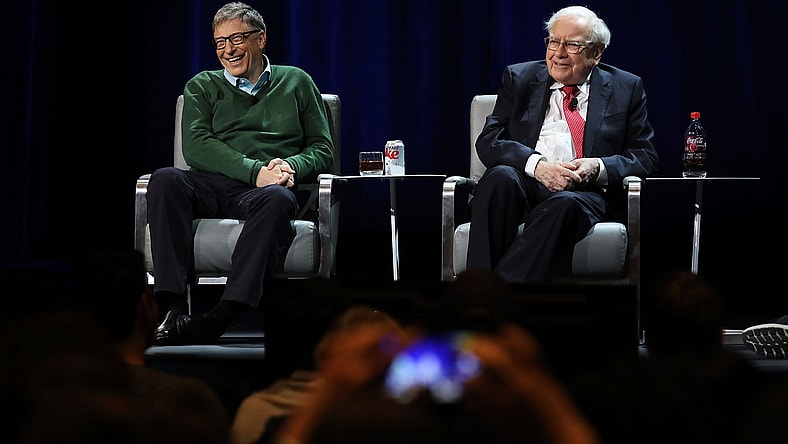Bill Gates Reveals He Learned the Ultimate Measure of Success From Warren Buffett
“I still assess the quality of my work. But I also ask myself a whole other set of questions about my life.”


On his blog titled GatesNotes, Microsoft billionaire Bill Gates posted a New Year’s entry titled “What I learned at work this year,” where he recounted his year and asked himself the deepest of questions about his life.
He wrote:
One thing that occurs to me is that the questions I am asking myself at age 63 are very different from the ones I would have asked when I was in my 20s.
Back then, an end-of-year assessment would amount to just one question: Is Microsoft software making the personal-computing dream come true?
Today of course I still assess the quality of my work. But I also ask myself a whole other set of questions about my life. Did I devote enough time to my family? Did I learn enough new things Did I develop new friendships and deepen old ones? These would have been laughable to me when I was 25, but as I get older, they are much more meaningful.
To answer his own questions, he revealed his ultimate measure of success, learned from fellow magnate Warren Buffett: “Do the people you care about love you back?”
Because when things are one-sided, it’s generally not a healthy relationship. “I think that is about as good a metric as you will find,” Gates says. And I personally agree. If the people you care about don’t love you back, you’re probably caring about the wrong people. That wouldn’t make anyone happy.
Furthermore, BroBible points out that Gates actually has a palpable and—as always—philanthropic New Year’s resolution:
I have always been committed to setting clear goals and making plans to achieve them. As I get older, these two things look more and more like the same exercise. So I am making a resolution for 2019. I am committing to learn and think about two key areas where technology has the potential to make an enormous impact on the quality of our lives, but also raises complex ethical and social considerations.
One is the balance between privacy and innovation. How can we use data to gain insights into education (like which schools do the best job of teaching low-income students) or health (like which doctors provide the best care for a reasonable price) while protecting people’s privacy?
The other is the use of technology in education. How much can software improve students’ learning? For years we have been hearing overheated claims about the huge impact that technology would have on education. People have been right to be skeptical. But I think things are finally coming together in a way that will deliver on the promises.
Coming from two of the wealthiest people alive, we can be certain that this is amazing advice and a measure of success everyone should use.
